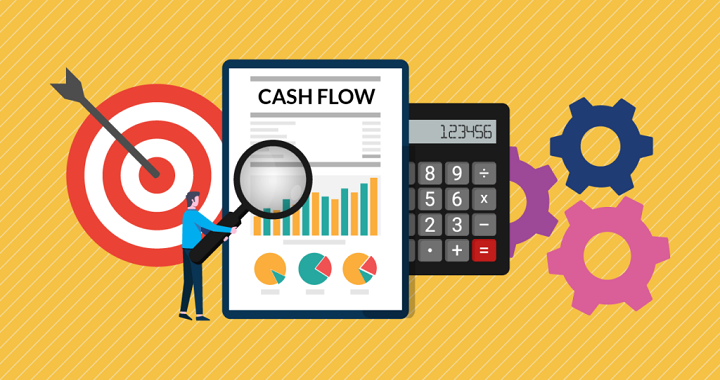Smart Money Management: Essential Tips for Every Budget

Smart money management is crucial for achieving financial stability and reaching your financial goals, regardless of your income level. Whether you’re just starting out or looking to optimize your current budget, these essential tips will help you manage your money wisely and make the most of every dollar.
1. Create a Detailed Budget:
A budget is the foundation of smart money management. Track your income and expenses to understand your financial situation. Categorize your spending and allocate funds for essential expenses, savings, and discretionary spending. A detailed budget helps you stay on track and ensures you’re living within your means.
2. Prioritize Savings:
Pay yourself first by prioritizing savings in your budget. Aim to save at least 20% of your income each month. Set up automatic transfers to your savings account to make saving effortless. Build an emergency fund to cover unexpected expenses and contribute to long-term savings goals like retirement.
3. Track Your Spending:
Keep a close eye on your spending habits. Use budgeting apps or spreadsheets to track your expenses and identify areas where you can cut back. Regularly reviewing your spending helps you stay mindful of your financial decisions and avoid unnecessary expenses.
4. Set Financial Goals:
Setting clear financial goals gives you direction and motivation. Define short-term goals, such as saving for a vacation or paying off debt, and long-term goals, like buying a home or retiring comfortably. Make sure your goals are specific, measurable, achievable, relevant, and time-bound (SMART).
5. Reduce Unnecessary Expenses:
Identify and eliminate non-essential expenses. Review your spending habits and look for areas where you can save, such as dining out, entertainment, and subscriptions. Reducing these expenses can free up more money for savings and other priorities.
6. Use Cash or Debit Cards:
Using cash or debit cards instead of credit cards can help you stick to your budget and avoid accumulating debt. Withdraw a set amount of cash each week for discretionary spending and stop spending when it’s gone. This method can help you become more mindful of your spending habits.
7. Avoid Impulse Purchases:
Impulse purchases can quickly derail your budget. To avoid them, make a shopping list before you go to the store and stick to it. Give yourself a cooling-off period before making non-essential purchases. This can help you determine if you really need the item or if it’s an impulse buy.
8. Plan for Large Expenses:
Plan for large expenses, such as vacations, home improvements, or major purchases, by setting aside money each month. Creating a sinking fund for these expenses helps you avoid dipping into your emergency fund or accumulating debt.
9. Take Advantage of Discounts and Coupons:
Look for discounts, coupons, and cashback offers to save money on your purchases. Use apps and websites that provide coupons for groceries, clothing, and other essentials. Combining discounts with sales can maximize your savings.
10. Review and Adjust Your Budget Regularly:
Your budget should be flexible and adaptable to changes in your financial situation. Review your budget regularly, at least once a month, to ensure you’re on track with your goals. Adjust your budget as needed to account for changes in income, expenses, or financial priorities.
11. Use Budgeting Tools:
Take advantage of budgeting tools and apps to simplify the budgeting process. Many apps can help you track your spending, categorize expenses, and set financial goals. These tools provide insights into your spending habits and help you stay accountable to your budget.
12. Build Good Credit:
Maintaining a good credit score is essential for smart money management. Pay your bills on time, keep your credit card balances low, and avoid applying for too much credit at once. A good credit score can help you secure better interest rates on loans and save money over time.
13. Avoid High Fees and Interest Rates:
Investment fees and high-interest rates can erode your returns and increase your debt. Choose investments with low expense ratios and be mindful of credit card interest rates. Pay off high-interest debt as quickly as possible to save money on interest payments.
14. Educate Yourself on Financial Management:
Improving your financial literacy can help you make better decisions and manage your money more effectively. Read books, take courses, and follow reputable financial news sources to expand your knowledge on personal finance and money management.
15. Seek Professional Advice:
If you’re unsure about how to manage your money or have complex financial goals, consider seeking advice from a financial advisor. A professional can provide personalized guidance, help you create a comprehensive financial plan, and offer strategies to optimize your budget.
Conclusion:
Smart money management is essential for achieving financial stability and reaching your financial goals. By creating a detailed budget, prioritizing savings, tracking your spending, and setting clear financial goals, you can manage your money wisely. Reducing unnecessary expenses, avoiding impulse purchases, and planning for large expenses are additional strategies to help you stay on track. Regularly reviewing and adjusting your budget, using budgeting tools, and seeking professional advice can further enhance your financial well-being. Start implementing these essential tips today and enjoy the benefits of smart money management.





